Top 10 Jute Goods Importing Countries
Md. Joynal Abdin*
Thank you for reading this post, don't forget to subscribe!Business Consultant & Digital Marketer
Co-Founder & CEO of Bangladesh Trade Center
The international trade of jute goods plays a significant role in the global economy. Jute, a natural fiber derived from the jute plant, is widely used in the production of various goods such as bags, sacks, rugs, carpets, textiles, and handicrafts. Bangladesh, India, and other jute-producing countries are major exporters of jute goods.
Bangladesh, historically known as the largest exporter of jute goods, has been a key player in the international jute trade. The country’s jute industry has contributed significantly to its economy and provided employment opportunities. Jute products from Bangladesh, including jute bags and textiles, are exported to various countries around the world.
India is another major player in the international jute trade. The country is a significant producer and exporter of jute goods, with a focus on jute bags, floor coverings, and textiles. Indian jute products are exported to countries in Europe, North America, Asia, and Africa.
Other jute-producing countries, including China, Thailand, Nepal, and Myanmar, also participate in the global trade of jute goods, although to a lesser extent. These countries export jute-based products to meet the demand in various markets.
The international trade of jute goods is influenced by factors such as demand for eco-friendly and sustainable products, government policies, market trends, and the availability of raw jute. The versatility, durability, and environmentally friendly nature of jute make it an attractive choice for many consumers and businesses worldwide.
In recent years, there has been a growing interest in jute as a sustainable alternative to synthetic materials, leading to an increased demand for jute products in various industries, including packaging, home decor, fashion, and agriculture.
Top 10 Jute Goods Importing Countries:
- United States: The United States is a significant importer of jute goods, utilizing them in various industries such as agriculture, construction, packaging, and textiles.
- United Kingdom: The UK has a historical connection to jute trade and continues to import jute goods for use in fashion, interior design, and upholstery.
- Germany: Germany is an important market for jute goods, particularly for the manufacturing of bags, carpets, and home furnishing items.
- Belgium: Belgium imports jute goods for applications such as packaging, carpet manufacturing, and agricultural use.
- Netherlands: The Netherlands imports jute goods primarily for industrial purposes such as packaging and insulation.
- Canada: Canada imports jute goods for various sectors, including agriculture, construction, and textile manufacturing.
- France: France imports jute goods for fashion, home decor, and packaging industries.
- Italy: Italy imports jute goods for the production of fashion and home furnishing items, given its strong textile industry.
- Australia: Australia imports jute goods for applications such as packaging, agriculture, and home decor.
- Saudi Arabia: Saudi Arabia is a significant importer of jute goods, particularly for packaging and construction purposes.
- United States
The United States is one of the prominent importing countries for jute goods. While jute is not extensively produced in the US, the demand for jute-based products, particularly jute bags, has remained significant.
Jute bags, commonly used as shopping bags, beach bags, and promotional items, have gained popularity in the US due to their eco-friendly and sustainable characteristics. They are favored as alternatives to plastic bags because of jute’s biodegradability and renewable nature.
The US imports jute goods from various jute-producing countries, including Bangladesh, India, China, and others. Bangladesh has been a major exporter of jute goods to the US, supplying a significant portion of the jute bags consumed in the country.
Jute products are imported by US retailers, wholesalers, and distributors to meet the demand from consumers and businesses. They are utilized in sectors such as retail, agriculture, packaging, and promotional merchandise.
The demand for jute goods in the US has been driven by the growing awareness of sustainable and environmentally friendly practices. Consumers and businesses are increasingly adopting jute bags as an eco-conscious choice to reduce plastic waste and support sustainable alternatives.
Furthermore, initiatives promoting reusable bags, eco-friendly packaging, and sustainable practices by retailers and local governments have contributed to the demand for jute goods in the US.
Overall, the United States serves as an important market for jute goods, with a focus on jute bags, as the country embraces sustainable alternatives and seeks to reduce its environmental impact.
- United Kingdom
The United Kingdom is a significant importing country for jute goods. While the UK does not produce jute domestically, it has a substantial demand for jute-based products.
Jute goods, such as bags, rugs, carpets, and home decor items, are imported into the UK from jute-producing countries like Bangladesh, India, and other suppliers worldwide. These jute products cater to both consumer and industrial needs in the UK market.
Jute bags, in particular, have gained popularity in the UK due to their eco-friendly and sustainable characteristics. The UK has seen a growing trend in favor of reusable and environmentally friendly alternatives to single-use plastic bags, with jute bags being a popular choice.
The demand for jute goods in the UK is driven by various factors, including environmental consciousness, sustainable practices, and a preference for natural fibers. Consumers, retailers, and businesses alike are increasingly opting for jute products to reduce plastic waste and embrace more sustainable options.
Additionally, the UK’s commitment to fair trade practices has led to the importation of jute goods from fair trade sources, ensuring that jute workers receive fair wages and safe working conditions.
The versatility and natural appeal of jute make it suitable for a range of applications, including home decor, fashion accessories, and packaging. Jute’s rustic and eco-friendly aesthetic has found a place in the UK market, appealing to consumers looking for environmentally conscious choices.
Overall, the United Kingdom’s import of jute goods reflects its commitment to sustainability, environmental awareness, and the adoption of eco-friendly alternatives. The demand for jute products continues to grow as consumers and businesses in the UK prioritize ethical sourcing and sustainable practices.
- Germany
Germany is a notable importing country for jute goods, with a significant demand for various jute-based products. While Germany does not produce jute itself, it relies on imports from jute-producing countries to meet the domestic market’s needs.
Jute bags, in particular, have gained popularity in Germany due to their eco-friendly nature and versatility. Consumers and businesses in Germany appreciate jute bags as an alternative to single-use plastic bags, aligning with the country’s focus on sustainability and environmental consciousness.
Germany imports jute goods from major jute-producing countries such as Bangladesh, India, and other global suppliers. These jute products include bags, rugs, carpets, textiles, and other items used in various sectors, including retail, agriculture, and home decor.
The demand for jute goods in Germany is driven by a combination of factors. Consumers are increasingly seeking sustainable and environmentally friendly alternatives, while retailers and businesses are embracing jute bags as a promotional and packaging solution that aligns with their sustainability goals.
Germany’s commitment to sustainability and its efforts to reduce plastic waste have fueled the popularity of jute goods in the market. The country’s consumers are conscious of the environmental impact of their choices and are actively seeking products that are ethically sourced and have a lower ecological footprint.
Additionally, Germany’s strong economy and well-established trading networks make it an attractive market for jute exporters. Suppliers from jute-producing countries cater to the German market by offering a diverse range of jute goods that meet the specific needs and preferences of German consumers.
- Belgium
Belgium is a notable importing country for jute goods, with a significant demand for various jute-based products. While Belgium does not produce jute itself, it relies on imports from jute-producing countries to meet the domestic market’s needs.
Jute bags, in particular, have gained popularity in Belgium due to their eco-friendly and sustainable characteristics. Consumers in Belgium are increasingly conscious of the environmental impact of their choices and are actively seeking alternatives to single-use plastic bags. Jute bags offer a practical and environmentally friendly option that resonates with their values.
Belgium imports jute goods from major jute-producing countries such as Bangladesh, India, and other global suppliers. These jute products include bags, rugs, carpets, textiles, and other items used in various industries, including retail, agriculture, and home decor.
The demand for jute goods in Belgium is driven by several factors. The country has a strong focus on sustainability and environmental responsibility, and consumers are actively seeking products that align with these values. Jute’s natural and renewable properties make it an attractive choice for those looking for eco-friendly alternatives.
Moreover, Belgium’s position as a central hub for international trade and commerce makes it an important market for jute exporters. The country’s well-established logistics and distribution networks facilitate the import of jute goods and their distribution throughout Europe.
Belgium’s commitment to sustainable practices, coupled with the increasing awareness of environmental issues, has contributed to the growth of the jute goods market in the country. Consumers, retailers, and businesses in Belgium are embracing jute products as part of their efforts to reduce plastic waste and promote a more sustainable future.
Overall, Belgium’s import of jute goods reflects its dedication to sustainability, environmental awareness, and the adoption of eco-friendly alternatives. The demand for jute products continues to rise as Belgian consumers and businesses prioritize ethical sourcing, sustainability, and environmentally friendly practices.
- Netherlands
The Netherlands is a significant importing country for jute goods, with a notable demand for various jute-based products. While the Netherlands does not produce jute itself, it relies on imports from jute-producing countries to meet its domestic market needs.
Jute bags, in particular, have gained popularity in the Netherlands due to their eco-friendly and sustainable characteristics. Dutch consumers are increasingly conscious of the environmental impact of their choices and are actively seeking alternatives to single-use plastic bags. Jute bags offer a practical and environmentally friendly option that aligns with their sustainability values.
The Netherlands imports jute goods from major jute-producing countries such as Bangladesh, India, and other global suppliers. These jute products encompass a wide range, including bags, rugs, carpets, textiles, and other items used in sectors such as retail, agriculture, and home decor.
The demand for jute goods in the Netherlands is driven by various factors. The country has a strong focus on sustainability and environmental responsibility, and Dutch consumers actively seek products that align with these values. Jute’s natural and renewable properties make it an attractive choice for those looking for eco-friendly alternatives.
Furthermore, the Netherlands has a well-developed logistics and distribution infrastructure, making it an important gateway for jute goods entering Europe. Its strategic location and efficient trade networks facilitate the import and distribution of jute products throughout the region.
The Netherlands’ commitment to sustainability, circular economy principles, and reducing plastic waste has fueled the growth of the jute goods market. Consumers, retailers, and businesses in the Netherlands actively choose jute products to support a more sustainable future and reduce their ecological footprint.
- Canada
Canada is a significant importing country for jute goods, with a notable demand for various jute-based products. While Canada does not produce jute itself, it relies on imports from jute-producing countries to meet its domestic market needs.
Jute bags, in particular, have gained popularity in Canada due to their eco-friendly and sustainable characteristics. Canadian consumers are increasingly conscious of the environmental impact of their choices and are actively seeking alternatives to single-use plastic bags. Jute bags offer a practical and environmentally friendly option that aligns with their sustainability values.
Canada imports jute goods from major jute-producing countries such as Bangladesh, India, and other global suppliers. These jute products encompass a wide range, including bags, rugs, carpets, textiles, and other items used in sectors such as retail, agriculture, and home decor.
The demand for jute goods in Canada is driven by various factors. The country has a strong focus on environmental responsibility and sustainable practices, with consumers actively seeking products that align with these values. Jute’s natural and renewable properties make it an attractive choice for those looking for eco-friendly alternatives.
Moreover, Canada’s diverse and multicultural population contributes to the demand for jute goods. Jute products, with their unique textures and designs, appeal to individuals and communities with a preference for natural and culturally significant materials.
Canada’s commitment to sustainability, circular economy principles, and reducing plastic waste has contributed to the growth of the jute goods market. Consumers, retailers, and businesses in Canada actively choose jute products to support a more sustainable future and reduce their ecological footprint.
Overall, Canada’s import of jute goods reflects its dedication to sustainability, environmental awareness, and the adoption of eco-friendly alternatives. The demand for jute products continues to rise as Canadian consumers and businesses prioritize ethical sourcing, sustainability, and environmentally friendly practices.
- France
France is a notable importing country for jute goods, with a significant demand for various jute-based products. While France does not produce jute itself, it relies on imports from jute-producing countries to fulfill its domestic market needs.
Jute bags, in particular, have gained popularity in France due to their eco-friendly and sustainable characteristics. French consumers are increasingly conscious of the environmental impact of their choices and actively seek alternatives to single-use plastic bags. Jute bags offer a practical and environmentally friendly option that aligns with their sustainability values.
France imports jute goods from major jute-producing countries such as Bangladesh, India, and other global suppliers. These jute products encompass a wide range, including bags, rugs, carpets, textiles, and other items used in sectors such as retail, agriculture, and home decor.
The demand for jute goods in France is driven by various factors. The country has a strong emphasis on sustainability and environmental responsibility, with consumers actively seeking products that align with these values. Jute’s natural and renewable properties make it an attractive choice for those looking for eco-friendly alternatives.
Furthermore, France’s commitment to reducing plastic waste and promoting sustainable practices has contributed to the growth of the jute goods market. Initiatives and regulations promoting the use of reusable bags and sustainable packaging options have increased the demand for jute bags in retail and grocery sectors.
France’s well-developed distribution networks and established trade partnerships facilitate the import and distribution of jute products throughout the country. Its strategic location and vibrant retail industry make it an important market for jute exporters.
- Italy
Italy is a notable importing country for jute goods, with a significant demand for various jute-based products. While Italy does not produce jute itself, it relies on imports from jute-producing countries to meet its domestic market needs.
Jute bags, in particular, have gained popularity in Italy due to their eco-friendly and sustainable characteristics. Italian consumers are increasingly conscious of the environmental impact of their choices and actively seek alternatives to single-use plastic bags. Jute bags offer a practical and environmentally friendly option that aligns with their sustainability values.
Italy imports jute goods from major jute-producing countries such as Bangladesh, India, and other global suppliers. These jute products encompass a wide range, including bags, rugs, carpets, textiles, and other items used in sectors such as retail, agriculture, and home decor.
The demand for jute goods in Italy is driven by various factors. The country has a strong focus on sustainability and environmental responsibility, with consumers actively seeking products that align with these values. Jute’s natural and renewable properties make it an attractive choice for those looking for eco-friendly alternatives.
Additionally, Italy’s renowned fashion industry plays a role in the demand for jute goods. Jute’s unique texture and versatility make it an appealing material for designers seeking natural and environmentally friendly options in their creations.
Italy’s well-developed trade networks and established relationships with jute-producing countries facilitate the import and distribution of jute products throughout the country. Its fashion-forward culture and appreciation for quality craftsmanship make it an important market for jute exporters.
Overall, Italy’s import of jute goods reflects its dedication to sustainability, environmental awareness, and the adoption of eco-friendly alternatives. The demand for jute products continues to rise as Italian consumers and businesses prioritize ethical sourcing, sustainability, and environmentally friendly practices.
- Australia
Australia is a notable importing country for jute goods, with a significant demand for various jute-based products. While Australia does not produce jute itself, it relies on imports from jute-producing countries to meet its domestic market needs.
Jute bags, in particular, have gained popularity in Australia due to their eco-friendly and sustainable characteristics. Australian consumers are increasingly conscious of the environmental impact of their choices and actively seek alternatives to single-use plastic bags. Jute bags offer a practical and environmentally friendly option that aligns with their sustainability values.
Australia imports jute goods from major jute-producing countries such as Bangladesh, India, and other global suppliers. These jute products encompass a wide range, including bags, rugs, carpets, textiles, and other items used in sectors such as retail, agriculture, and home decor.
The demand for jute goods in Australia is driven by various factors. The country has a strong emphasis on sustainability and environmental responsibility, with consumers actively seeking products that align with these values. Jute’s natural and renewable properties make it an attractive choice for those looking for eco-friendly alternatives.
Furthermore, Australia’s commitment to reducing plastic waste and promoting sustainable practices has contributed to the growth of the jute goods market. Initiatives and regulations promoting the use of reusable bags and sustainable packaging options have increased the demand for jute bags in retail and grocery sectors.
Australia’s well-developed distribution networks and established trade partnerships facilitate the import and distribution of jute products throughout the country. Its expansive retail market and outdoor lifestyle make it an important market for jute exporters.
- Saudi Arabia
Saudi Arabia is a notable importing country for jute goods, with a growing demand for various jute-based products. While Saudi Arabia does not produce jute itself, it relies on imports from jute-producing countries to meet its domestic market needs.
Jute bags, in particular, have gained popularity in Saudi Arabia due to their eco-friendly and sustainable characteristics. Saudi consumers are increasingly conscious of the environmental impact of their choices and actively seek alternatives to single-use plastic bags. Jute bags offer a practical and environmentally friendly option that aligns with their sustainability values.
Saudi Arabia imports jute goods from major jute-producing countries such as Bangladesh, India, and other global suppliers. These jute products encompass a wide range, including bags, rugs, carpets, textiles, and other items used in sectors such as retail, agriculture, and home decor.
The demand for jute goods in Saudi Arabia is driven by various factors. The country has a growing focus on sustainability and environmental responsibility, with consumers actively seeking products that align with these values. Jute’s natural and renewable properties make it an attractive choice for those looking for eco-friendly alternatives.
Furthermore, the Saudi government’s efforts to reduce plastic waste and promote sustainable practices have contributed to the growth of the jute goods market. Initiatives encouraging the use of reusable bags and sustainable packaging options have increased the demand for jute bags in retail and grocery sectors.
Saudi Arabia’s well-established trade networks and its position as a major economic hub in the Middle East facilitate the import and distribution of jute products throughout the country. Its vibrant retail sector and growing interest in sustainable products make it an important market for jute exporters.
Overall, Saudi Arabia’s import of jute goods reflects its dedication to sustainability, environmental awareness, and the adoption of eco-friendly alternatives. The demand for jute products continues to rise as Saudi consumers and businesses prioritize ethical sourcing, sustainability, and environmentally friendly practices.
Top 10 Jute Goods Importing Countries: Top 10 Jute Goods Importing Countries: Top 10 Jute Goods Importing Countries
*Author’s Short Profile:
Mr. Md. Joynal Abdin is a Business Consultant & Digital Marketer based in Dhaka, Bangladesh. He is also Co-Founder & CEO of Bangladesh Trade Center. Previously he served at Dhaka Chamber of Commerce & Industry (DCCI) as Executive Secretary; DCCI Business Institute (DBI) as Executive Director; SME Foundation as Deputy Manager; and the Federation of Bangladesh Chambers of Commerce & Industry (FBCCI) as Assistant Secretary.
The list of services Mr. Abdin is offering includes but not limited to Business Research and Documentations like Feasibility Study, Project Proposal Preparation, Writing Business Manual, Standard Operating Procedures etc.; Export Market Selection and Product Positioning at Home and Abroad; Buyers-Sellers Matchmaking; Website Development; Search Engine Optimization (SEO); and Social Media Marketing etc.
Top 10 Jute Goods Importing Countries: Top 10 Jute Goods Importing Countries: Top 10 Jute Goods Importing Countries
Developing Bangladesh Business Consultant & Digital Marketer Read More…
Social tagging: #Biggest jute importers > #Jute goods importing countries > #Jute product demand countries > #Key jute importing nations > #Largest jute import markets > #Leading jute markets > #Major jute buyers > #Top global jute importers > #Top jute import destinations > #Top jute importers > Jute Goods Importers > Jute Products Importing Countries > Top 10 Jute Goods Importing Countries
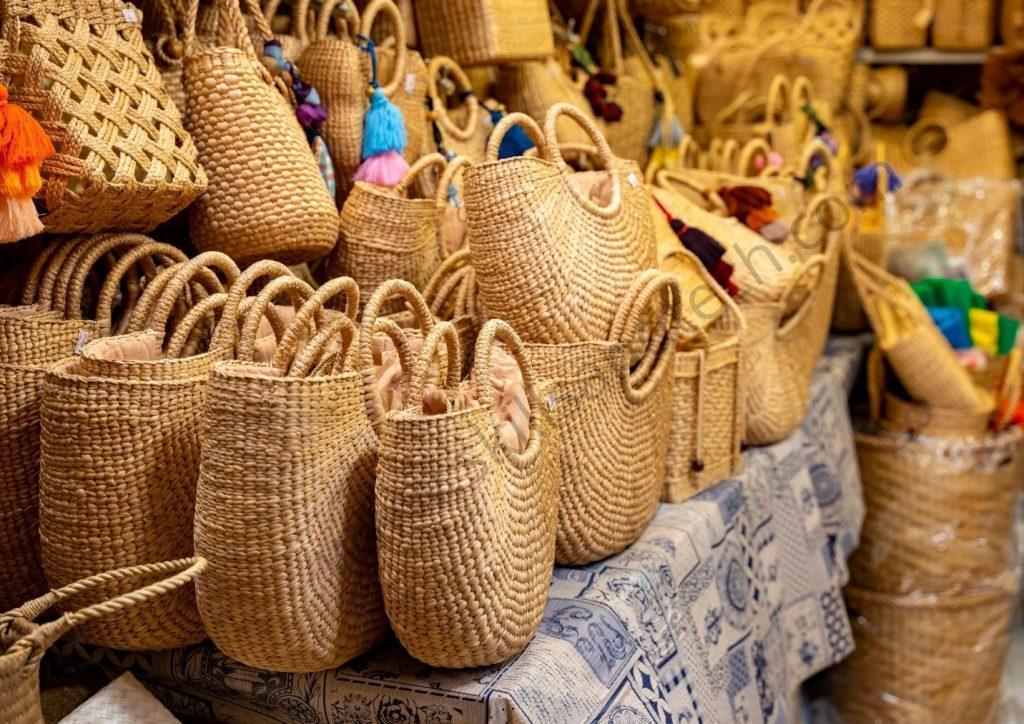
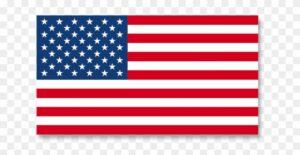
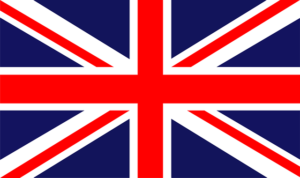
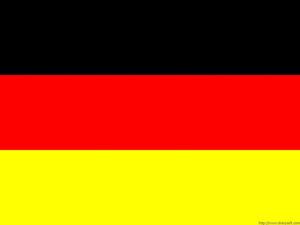
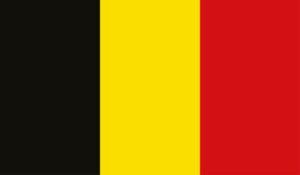



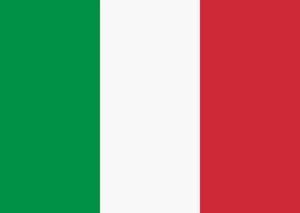
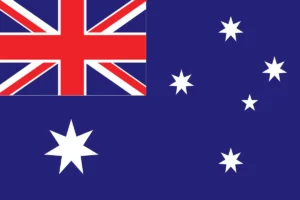



 by
by